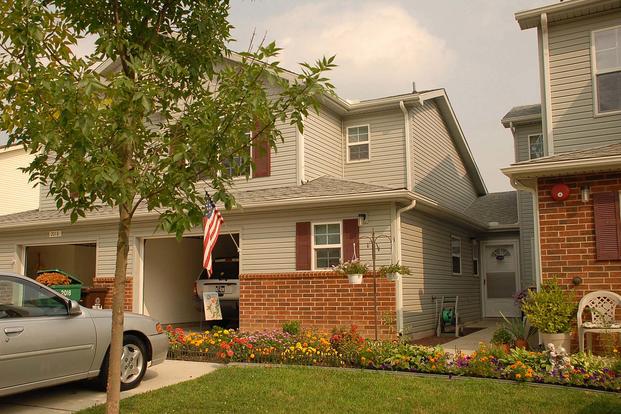A new poll of military families living in base housing found that more than half of respondents said they had negative experiences living in privately managed housing, and some reported living in dangerous living conditions that included mold, lead paint, faulty wiring, poor water quality and pestilence such as mice and squirrels.
The non-profit Military Family Advisory Network (MFAN) conducted an online survey from Jan. 30 to Feb. 6 to understand the scope of problems in military homes, following reports last year of issues with the private companies that manage base housing, as well as an extensive investigation by Reuters last August on lead contamination in Army housing.
Of the 14,558 respondents who now live in privately managed military housing or have resided in such homes in the past three years, nearly 56 percent said they had "negative or very negative experiences" with their houses.
The problems were not confined to a single company. In fact, military families cited 35 different companies in their responses.
The survey results were released Wednesday, hours before Senate Armed Services subcommittees hold a joint hearing on problems at privatized military housing, with family members, Defense Department officials and leadership from five private companies testifying.
According to the survey, families reported illnesses with lifelong implications, such as respiratory diseases and lead poisoning, as the result of living in poor conditions. The respondents also noted that their requests for remediation or condition reports often were denied and ignored, and that military commanders moved to "silence their complaints."
In the executive summary of the survey results, MFAN officials wrote that they were surprised by the sheer number of respondents to the questionnaire, and called the dissatisfaction rate "alarming."
"As we continue our qualitative analysis, we will learn much more about their experiences and identify geographic 'hot spots' for issue areas," the summary noted.
According to the report, three-fourths of the respondents were in the enlisted ranks, with more than half in the E-4 to E-6 ranks.
One spouse who responded said she was living in temporary housing with three children while the family's home was being remediated for mold. According to the spouse, the management company "denied for weeks that mold existed after a flood of unknown origin saturated our walls and carpet."
"An environmental company estimated the work would take two to three weeks ... the management company informed me it would take only a few days. ... During the same call, I was informed that the locks would be changed and I would not be allowed to check on my home or any of my belongings during the work. I don't know how that's legal," the spouse wrote.
MFAN noted that military families often have no recourse for holding management companies accountable -- they cannot withhold rent, as it's drawn automatically from paychecks, and often their formal complaints go ignored.
"We heard from multiple families that their concerns were downplayed. Many were told that mold was dirt and nothing could be done about visible mold growing on window sills, walls and ceilings. Several families reported the issues to base commanders, elected officials and the Environmental Protection Agency with little or no change or accountability," they wrote.
The survey was not scientific; it was targeted for a specific population and not a random sampling. So the results must be interpreted as having bias toward those who wanted their voices heard on privatized housing issues.
Still, the preliminary research indicates a "disconnect between our findings related to resident satisfaction and what has been reported by privatized housing companies," warranting that the Defense Department work with families and advocates to gain an "authentic understanding" of the military family experience, MFAN noted.
The Defense Department began privatizing its military housing in 1996, hiring companies to build, renovate, restore and manage most on-installation housing. The majority of the responses to the MFAN survey involved Lincoln Military Housing, Balfour Beatty Communities, Hunt Military Communities, Corvias Military Living, Winn Companies and Michael's Military Housing.
The survey covered installations in all 46 states that have privatized military housing. (Michigan, Minnesota, Oregon and Vermont have none.) Many of the respondents live in states with large military communities such as California, Hawaii, North Carolina, Texas and Virginia.
About 30 percent of military families live in military housing, according to the DoD.
-- Patricia Kime can be reached at Patricia.Kime@Military.com. Follow her on Twitter @patriciakime.













